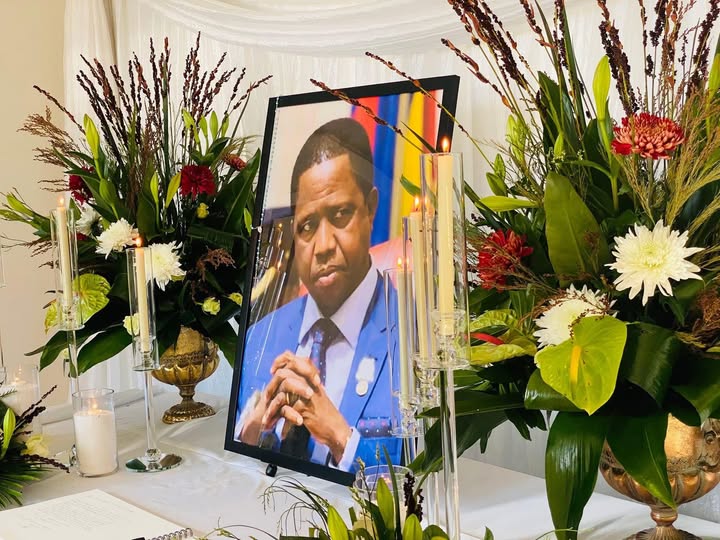Pretoria — The family of late former Zambian President Edgar Lungu has filed an urgent application for leave to appeal a ruling by the Pretoria High Court regarding his funeral and burial arrangements.
With the now appeal lodged in this entails that the body of the late former President still cannot be accessed or moved from South Africa. In accordance with South African law, the lodging of an appeal has the legal effect of suspending the execution of any court order or judgment that has been appealed, unless the court orders otherwise. This means that the Pretoria High Court’s ruling delivered on 8 August 2025, which allowed for the repatriation of President Lungu’s remains to Zambia for a state funeral and burial, has effectively been placed on hold.
According to Section 18 of the Superior Courts Act of South Africa, any application for leave to appeal or the actual filing of an appeal suspends the operation and execution of a decision unless the court specifically rules that it should not. This legal principle reflects the broader common law tradition in South Africa where the noting of an appeal automatically stays enforcement. As such, no party, including the Government of the Republic of Zambia, may lawfully act on the judgment until the appeal is determined.
The legal representatives for the Lungu family, Mashele Attorneys, filed the appeal before the Gauteng Division of the High Court in Pretoria, citing multiple grounds for their challenge against the Full Court’s ruling. These include claims that the court erred in granting several orders based on what the family contends was a misrepresented or non-existent agreement regarding the funeral and burial arrangements for the late president. Specifically, they argue that Annexure “FAA7,” the document purported to contain the agreement between the family and the Zambian government, was merely a tentative program and not a final consensus. They further assert that the government unilaterally introduced a conflicting handwritten program, “Annexure EL16,” which was never accepted by the family.
Among the key points of the appeal is the assertion that the court erred in suggesting that the current Zambian President could play a role in the burial, despite the absence of such a provision in the original agreement and contrary to the express wishes of the late President Lungu. The appeal reiterates that the deceased had made it clear to not only his family but in an interview aswell that those who ignored or mistreated him in life should not pretend to care for him in death, a sentiment the family believes the court failed to honor.
The appeal also challenges the application of Zambian law in the original judgment. The family contends that South African law should prevail, given that President Lungu died on South African soil and that any agreement concerning his burial was made within South Africa’s jurisdiction. They argue that the Full Court incorrectly relied on legal precedent where the application of foreign law had been explicitly agreed upon by both parties, which was not the case here. They further highlight the lack of expert testimony on Zambian law to support the judgment’s findings regarding repatriation.
Another major point raised in the appeal concerns the constitutional rights of the applicants under South African law. The family claims that the court trivialized their concerns and wishes, effectively denying them their rights under sections 10, 12, 15, and 30 of the South African Constitution, which deal with human dignity, freedom of belief, and cultural and religious practices.
The filing also asserts that the government of Zambia acted in bad faith by misleading the family into believing that the current President would not be involved in the funeral, only to later attempt to impose such involvement against their will. They argue that such deception renders any purported agreement void due to impossibility or unacceptable harm to the applicants.
By filing the appeal, the Lungu family seeks not only to overturn the judgment allowing the repatriation of the body but also to ensure that the wishes of their late father and husband are honored.
Until the appeal is resolved, the status quo remains. The former president’s body will not be moved or buried, and any arrangements purportedly authorized by the now-suspended judgment are legally unenforceable. This development has extended the legal and diplomatic standoff between the late President’s family and the Zambian government, further delaying the final rites of the man who once led the nation.



